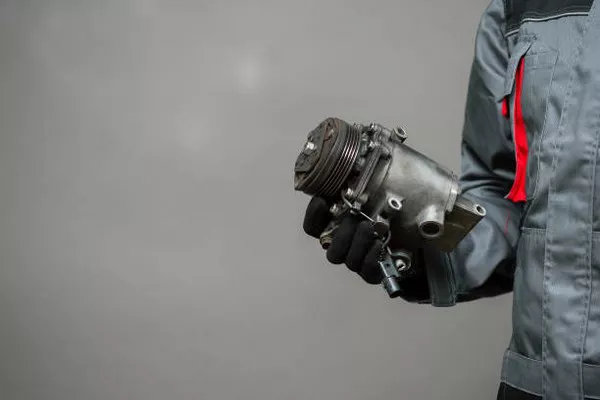Refrigeration compressors are the heart of any cooling system, playing a crucial role in the refrigeration cycle. Among the various components that make up a compressor, the unloader mechanism stands as an essential feature with a specific purpose. In this article, we will explore the purpose of the unloader in refrigeration compressors and understand its significance in maintaining the efficiency and longevity of these systems.
Understanding the Refrigeration Compressor
Before delving into the unloader’s role, it is essential to comprehend the basics of a refrigeration compressor. A refrigeration compressor is responsible for compressing the low-pressure, low-temperature gas refrigerant from the evaporator into a high-pressure, high-temperature gas that can release heat when it flows through the condenser. This compression process is vital for cooling applications like air conditioning, refrigeration, and heat pumps.
Components of a Refrigeration Compressor
A typical refrigeration compressor consists of several critical components, including:
Compressor Motor: The motor provides the power to operate the compressor, typically using electricity.
Compressor Housing: This encases the internal components and ensures they remain sealed and lubricated.
Crankshaft: The crankshaft is a rotating shaft that connects the motor to the piston assembly.
Piston: Pistons are responsible for compressing the refrigerant gas.
Valves: Valves control the flow of refrigerant in and out of the compression chamber.
Unloader Mechanism: The unloader is a valve or mechanism that plays a vital role in controlling compressor capacity.
Understanding the Unloader Mechanism
The unloader mechanism in a refrigeration compressor is designed to modulate the compressor’s capacity by controlling the flow of refrigerant. This modulation is crucial for maintaining system efficiency and preventing damage to the compressor under varying load conditions.
Purpose of the Unloader in Refrigeration Compressors
Now, let’s explore the primary purposes and functions of the unloader in refrigeration compressors:
1. Capacity Control:
One of the key functions of the unloader is to adjust the compressor’s capacity based on the cooling load requirements. In refrigeration and air conditioning systems, cooling loads can vary significantly throughout the day. The unloader helps match the compressor’s output to the current cooling demand, ensuring that the system operates efficiently and avoids over-compression, which can lead to energy waste and compressor wear.
2. Reducing Energy Consumption:
By modulating the compressor’s capacity, the unloader helps reduce energy consumption during periods of partial load. This is particularly important in commercial and industrial refrigeration systems, where compressors often need to operate continuously but can be adjusted to lower capacity during off-peak hours or when cooling demand is lower.
3. Preventing Compressor Damage:
Operating a compressor at full capacity when the cooling load is minimal can result in issues such as liquid refrigerant floodback, which can damage the compressor. The unloader helps prevent such damage by allowing the compressor to operate at lower capacities or even unload completely when necessary.
4. Temperature and Pressure Control:
The unloader also plays a role in maintaining the desired temperature and pressure levels in the refrigeration system. By controlling the flow of refrigerant, it helps stabilize the system’s performance and prevent overheating or undercooling.
5. Improved System Longevity:
Properly functioning unloaders contribute to the longevity of the compressor and the entire refrigeration system. By preventing excessive wear and tear on the compressor, they reduce the need for frequent maintenance and repairs.
FAQs about Unloaders in Refrigeration Compressors
Now that we have discussed the purpose and significance of the unloader in refrigeration compressors, let’s address some common questions related to this essential component.
1. Do all refrigeration compressors have unloaders?
No, not all refrigeration compressors are equipped with unloaders. The presence of an unloader depends on the type and application of the compressor. Large industrial compressors and some commercial systems often incorporate unloaders for capacity control, while smaller residential compressors may not have this feature.
2. How does the unloader know when to modulate the compressor’s capacity?
The unloader mechanism operates based on various signals, including pressure and temperature measurements within the refrigeration system. Sensors and control systems monitor these parameters and signal the unloader to adjust the compressor’s capacity as needed to maintain optimal performance.
3. Can an unloader be added to an existing compressor?
In some cases, it may be possible to retrofit an existing compressor with an unloader mechanism, but this depends on the compressor’s design and compatibility with the required modifications. It is typically more straightforward to select a compressor with an integrated unloader if capacity control is a critical requirement.
4. Are unloaders only used in commercial refrigeration systems?
While unloaders are commonly used in commercial and industrial refrigeration systems due to their varying cooling load demands, they can also be found in some residential air conditioning systems. However, the prevalence of unloaders in residential systems is lower compared to larger commercial units.
5. Are there different types of unloaders for refrigeration compressors?
Yes, there are various types of unloaders designed for refrigeration compressors. These include simple mechanical unloaders that use pressure-activated mechanisms and more sophisticated electronic unloaders that can modulate capacity with greater precision. The choice of unloader type depends on the specific requirements of the refrigeration system.
Conclusion
The unloader in a refrigeration compressor serves a vital role in ensuring the efficient and reliable operation of cooling systems. By modulating the compressor’s capacity in response to changing cooling load conditions, the unloader helps reduce energy consumption, prevent compressor damage, and maintain the desired temperature and pressure levels. Understanding the purpose and significance of the unloader is essential for engineers, technicians, and anyone involved in the design, installation, or maintenance of refrigeration systems. With proper utilization, unloaders contribute to the longevity and cost-effectiveness of these crucial cooling systems.

